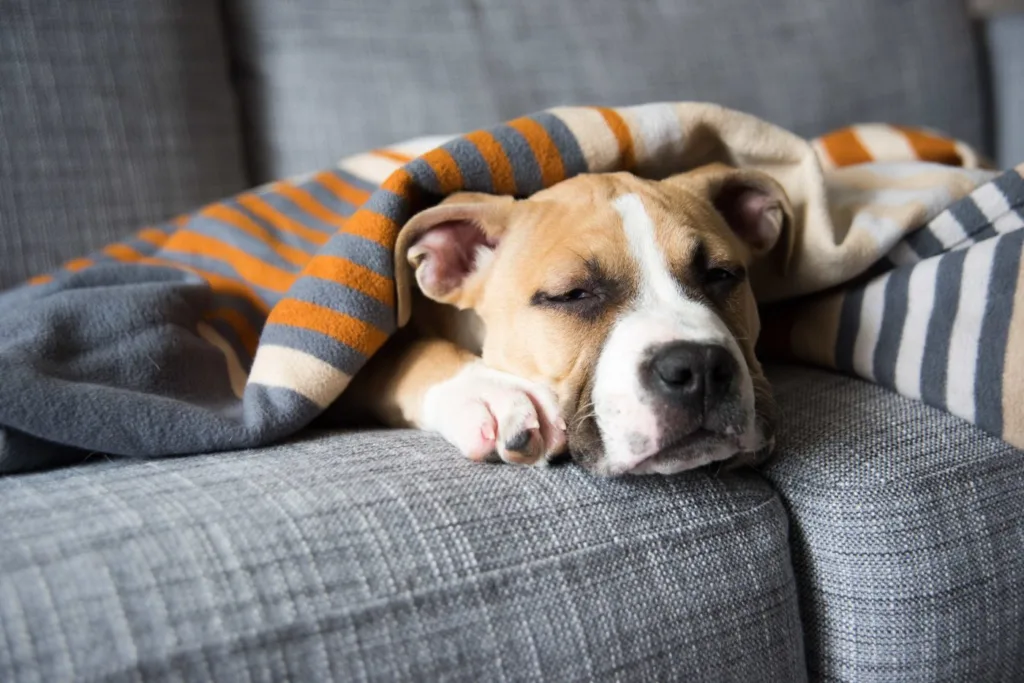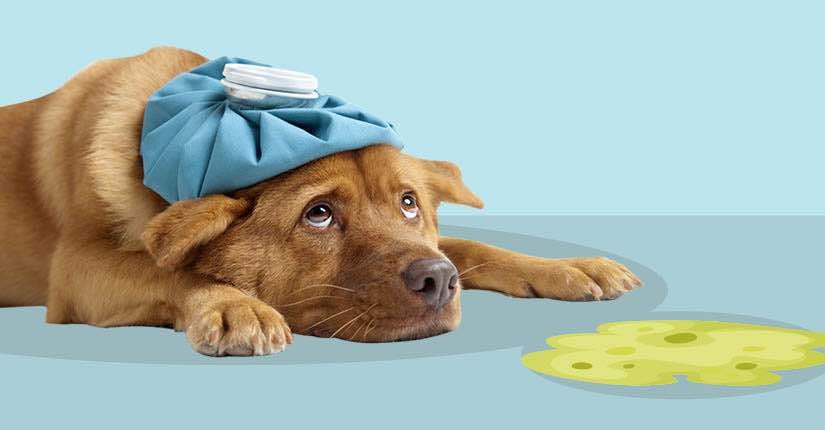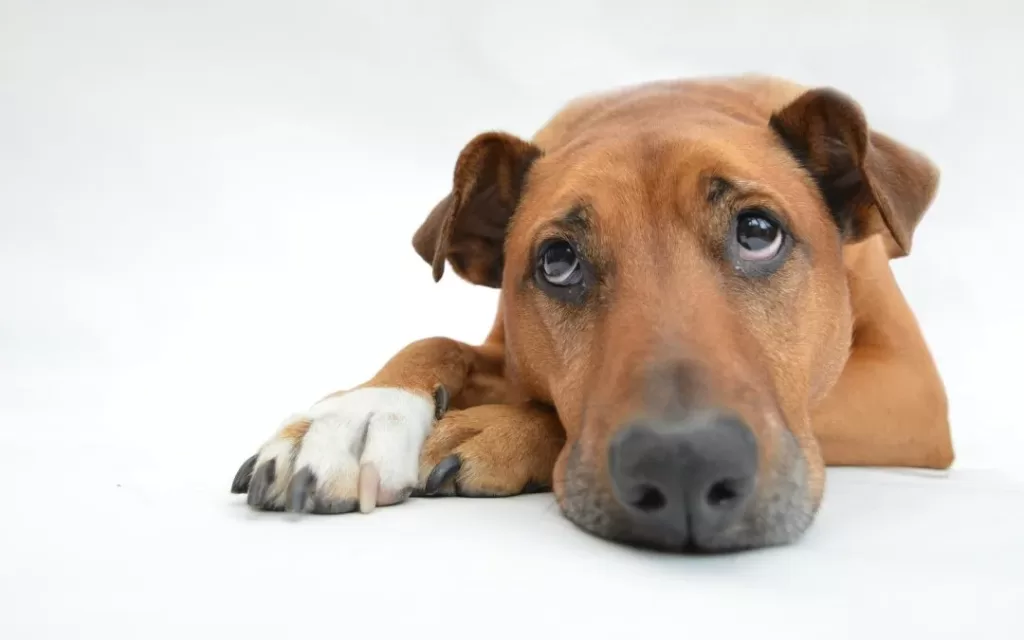When you observe your dog vomiting after drinking water, it’s hard to know what to do! Sure, you know how to react when you vomit, but knowing what your dog needs can be a completely different ball game.
Table of Contents
Here’s what to do when your dog vomits:
Examine the vomit
Roughly, I know, but this is an important step in figuring out what to do for your dog. Look specifically for food, blood, bile or anything that is not clearly visible.
Puppy dog vomiting after drinking water
Puppies have a tendency to chew on things they should not chew on, so you should look closely at any throw-up to see if it has caused their stomach. If you find anything, work to train them not to chew on these items and not to make the items available. Also, small dogs like teacup pomeranian vomit when they drink more than their capacity.
Here’s a chart outlining some common reasons why a dog might vomit after drinking water
| Possible Reasons for Dog Vomiting After Drinking Water | Description |
|---|---|
| 1. Drinking Too Quickly | Dogs can get overexcited and gulp water too fast, leading to vomiting. This is usually harmless and can be addressed by offering water in smaller amounts. |
| 2. Upset Stomach | Various factors, such as dietary indiscretion, food allergies, or eating something unusual, can lead to an upset stomach, causing vomiting after water intake. |
| 3. Gastroesophageal Reflux | Similar to acid reflux in humans, this condition can cause stomach acid to flow back into the esophagus, leading to vomiting, especially after drinking or eating. |
| 4. Regurgitation | Dogs may regurgitate food or water, which is different from vomiting. Regurgitation is often due to a temporary issue like a weak esophagus muscle. |
| 5. Foreign Object Ingestion | If a dog has swallowed a foreign object, it can irritate the stomach lining, leading to vomiting, which may occur after drinking water. |
| 6. Gastrointestinal Infections or Diseases | Infections, illnesses, or chronic conditions affecting the digestive tract can result in vomiting, which may be triggered or worsened by water consumption. |
| 7. Food Allergies or Intolerances | Some dogs may have allergies or intolerances to certain ingredients in their food, causing vomiting after eating or drinking. |
| 8. Heatstroke or Overheating | In hot weather, dogs may drink excessive water to cool down. This can sometimes lead to vomiting, especially if they drink too rapidly. |
| 9. Ingesting Toxins or Poisons | If a dog has ingested toxic substances, vomiting can be a symptom. This is a medical emergency and requires immediate veterinary attention. |
| 10. Underlying Health Conditions | Dogs with underlying health issues like kidney disease, pancreatitis, or liver problems may experience vomiting, which can be triggered by water consumption. |
Please note that while these are common reasons for vomiting after drinking water, each dog’s situation is unique, and if vomiting persists or is accompanied by other concerning symptoms, it’s essential to consult a veterinarian for a proper diagnosis and treatment.
Rest is the Key
Without food or water! Further, we will cover more about why you should not allow them inside, but encourage your dog to relax in the following step. Do not feed them, do not give water.

Dogs can be thrown up after drinking water for a variety of reasons. Dogs may actually vomit (emptying their stomachs) or they may recover (they may not swallow properly due to bringing back liquid or food).
Replacing water immediately after drinking can be a problem with the esophagus (food pipe). Eating and not drinking water after drinking usually indicates a problem with the stomach or intestines.
What caused the dog to throw up?
Dogs can throw up for a number of reasons. If your dog drinks a lot of water, especially after very cold water or exercise, it fills the stomach very quickly and throws some of them straight up.
If your dog does a lot of this, you can slow down your dog’s drinking by placing a large, clean stone in their bowl of water, giving them a little drink at a time.

Your dog can also drink a lot of water if your dog feels sick (nausea). Dogs sometimes eat grass. This is the dog’s way of removing toxins if he eats something that upsets the stomach.
There are many serious causes for dogs to vomit, including infections, toxins, blockages, metabolic disease (such as liver or kidney failure), and cancer.
If you have a large breed dog like the Doberman or the Great Danes, thrown up after drinking water, it means a twisted stomach and an emergency.
When should you worry about your dog throwing up?
If a dog throws up the water they drink, they quickly become dehydrated.
When they are dehydrated, they need treatment to stop them from vomiting and sometimes fluids by drip to rehydrate them.
If your dog does not eat, loses weight, becomes dull and lethargic, or has abdominal (stomach) pain or bloating, this may indicate a more serious problem and you should consult a vet immediately.
Can tap water make my dog sick?
Water from unclean sources can contain bacteria and other infectious organisms that can make dogs (and people) sick.
It is important to give your dog clean, pure, drinking water that is suitable for humans to drink as well.
Water that humans drink or that comes from mud pits can cause illness.
Stagnant water is especially dangerous to your dog’s health and you should discourage them from swimming or drinking from stagnant pools.
What can dogs drink other than water?
Dogs can drink special rehydration fluids that help them recover after vomiting or diarrhea. Few dogs are intolerant to lactose, so dairy products are not recommended.
Also Read: Why isn’t My Male Dog Interested in Mating?
Giving dogs tasty water as chicken stock encourages them to drink, but these should be used with caution as they have high salt levels.
What not to do in case of dog vomiting after drinking water
Some of our gut instincts as dog owners about what to do when a dog vomits is not the best way to treat our dogs’ digestive problems!
Here are some things you should not always do when a dog is vomiting after drinking water.
Forget about water.
They are eager to give your dog water so that they do not become dehydrated, as water actually triggers the gag reflex and causes more vomiting.
Do not give fluids to your dog for more than two hours after the last vomiting.
Do not give food to them.
For reasons similar to those given above for water, feeding your dog can exacerbate the problem. After stopping vomiting for more than two hours, return to their normal feeding schedule. Do not make changes unless they are necessary.
Do not change their diet suddenly.
Even if you suspect that their diet is causing their stomach, do not suddenly change their food routine, as it can cause more problems.
Gradually mix their current diet with the new one and change them that way.
Do not ignore this.
While vomiting is a common problem in dogs, it should not be ignored.
If your dog continues to vomit, take them to the vet to get a complete diagnosis and treatment plan.
FAQs
Why is my dog vomiting clear liquid after drinking water?
If your dog is throwing up clear liquid after drinking water, it might be due to various reasons. It could be a simple case of drinking too much water too quickly, causing an upset stomach. In some cases, it may indicate that your dog has swallowed something irritating or has a mild gastrointestinal issue. Keep an eye on your dog for any other symptoms, such as lethargy or diarrhea, and consult your vet if the vomiting persists or worsens.
How can I prevent my dog from vomiting after drinking water?
To help your dog stop vomiting after drinking water, try offering small amounts of water more frequently rather than allowing them to gulp down large amounts at once. Make sure the water is at room temperature, as very cold or very warm water can sometimes trigger vomiting. If the vomiting continues or your dog shows other concerning symptoms, consult your veterinarian for guidance.
Is it normal for a dog to spit up water?
Occasionally spitting up a small amount of water may not be a cause for concern and can happen if your dog drinks too fast or eagerly. However, frequent or persistent spitting up could indicate an underlying issue, such as an upset stomach or gastroesophageal reflux. Monitor your dog’s behavior and consult your vet if you’re worried about the frequency of water spitting.
What should I do if my dog can’t keep water down?
If your dog is consistently unable to keep water down, it’s important to consult your veterinarian promptly. This could be a sign of a more serious underlying problem, such as an infection, gastrointestinal issue, or a blockage. Dehydration can be a significant concern, so your vet can provide the best guidance on treatment and hydration methods.
Should I offer my dog water after vomiting?
After your dog has vomited, it’s generally a good idea to withhold water for about two hours to allow their stomach to settle. Then, offer small amounts of water at a time to help keep them hydrated without overwhelming their stomach. If vomiting continues or if your dog refuses water for an extended period, contact your veterinarian for advice on managing their hydration and addressing any underlying issues.
Wrapping up
In conclusion, understanding our dogs’ health and behavior is essential to providing them with the best care possible. If your dog is vomiting clear liquid after drinking water, it could be due to various reasons, including simple factors like drinking too quickly or more serious underlying issues. Taking a thoughtful and cautious approach by offering water in smaller amounts, at room temperature, can help alleviate some cases of vomiting.
However, if the vomiting persists, is frequent, or accompanied by other concerning symptoms, it’s crucial to seek professional guidance from a veterinarian. Timely veterinary care ensures that any underlying health issues are identified and addressed promptly, helping to keep our beloved canine companions happy and healthy.
Remember, being attentive to your dog’s well-being, consulting with a vet when necessary, and providing proper care are essential steps in ensuring a long and fulfilling life for your furry friend.

